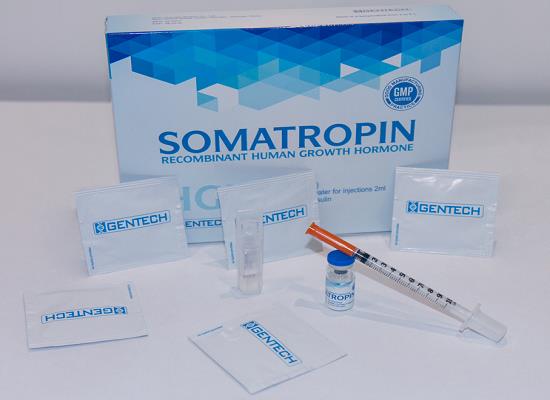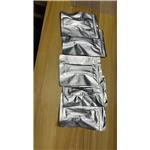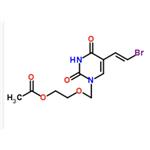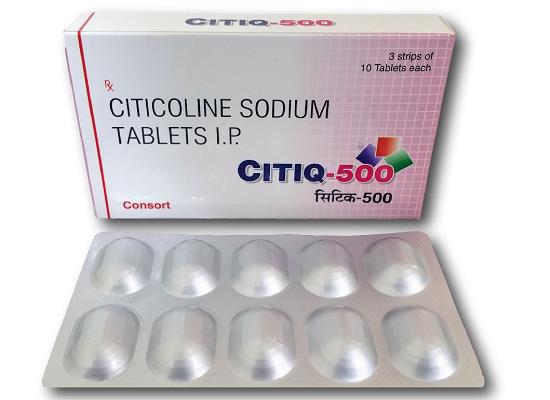Physiologic Basis of Somatotropin and Its Clinical Applications
General Description
Somatotropin, a polypeptide produced by the anterior pituitary gland, plays a crucial role in ovarian stimulation and reproductive processes. Its primary actions are mediated through Insulin-Like Growth Factors (IGFs), particularly IGF-1. Somatotropin promotes granulosa cell function and proliferation, reduces apoptosis, and enhances the action of follicle-stimulating hormone, leading to increased estradiol secretion. In assisted reproductive technology (ART), somatotropin supplementation has been used for poor responders, showing potential in improving certain reproductive outcomes. It has also shown promise in in vitro fertilization (IVF), improving oocyte maturation rates and possibly enhancing endometrial receptivity. However, further research is needed to fully understand its mechanisms and optimize its application in ART.

Figure 1. Injection of somatotropin
Physiologic Basis
The physiologic basis of somatotropin plays a crucial role in ovarian stimulation and reproductive processes. Somatotropin is a polypeptide produced and secreted by the anterior pituitary gland during sleep. Its primary actions are mediated through Insulin-Like Growth Factors (IGFs), particularly IGF-1. Somatotropin receptors are expressed in various tissues, including the liver, adipose tissue, muscle tissue, ovarian granulosa cells, and endometrial epithelial cells. Studies have shown that Somatotropin and IGF-1 promote granulosa cell function and proliferation, reduce apoptosis in granulosa-lutein cells, and enhance the action of follicle-stimulating hormone on its receptor, leading to increased estradiol secretion by granulosa cells. In female mammals, IGFs stimulate the growth of ovarian follicles before entering the terminal growth phase, which is dependent on FSH. In humans, the density of Somatotropin receptors in granulosa cells increases with age, but not in poor responders. Somatotropin treatment in women with low antral follicle count has been shown to increase the density of Somatotropin receptors, follicle-stimulating hormone receptor, luteinizing hormone/choriogonadotropin receptor, and bone morphogenetic protein receptor type-1B. Overall, these findings highlight the important role of Somatotropin and IGFs in ovarian function and reproductive processes, providing insights into potential therapeutic interventions for infertility and ovarian stimulation. 1
Clinical Applications
Ovarian Stimulation
Somatotropin has been used as an adjunct medication in ovarian stimulation for "poor responders" in assisted reproductive technology. Multiple studies, including randomized controlled trials and meta-analyses, have been conducted to assess its efficacy. Some studies have shown that Somatotropin treatment can improve clinical pregnancy rates and live birth rates in poor responders. However, more recent evidence has raised doubts about the beneficial effects of Somatotropin on live birth rates. Some studies did not find a significant difference in live birth rates between the Somatotropin-treated group and the placebo group. On the other hand, Somatotropin supplementation may have positive effects on certain reproductive outcomes, such as the number of oocytes retrieved and blastocyst formation in patients who are not classified as poor responders. Overall, while there is some evidence suggesting the potential benefits of Somatotropin supplementation in improving certain reproductive outcomes, further research is needed to determine its impact on live birth rates in poor responders. 2
In Vitro Fertilization
Somatotropin has shown potential in its application during in vitro fertilization. In the laboratory setting of Assisted Reproductive Technology, Somatotropin has demonstrated promising results when added to culture media. One area of focus is in vitro maturation of immature oocytes. Studies have shown that the addition of Somatotropin to the culture media can improve the maturation rates of human oocytes. In one study, GV oocytes cultured with Somatotropin showed higher maturation rates compared to those without Somatotropin. The highest maturation rate was observed at a Somatotropin concentration of 200 ng/ml. Although the findings did not reach statistical significance, Somatotropin supplementation also showed increased fertilization and blastocyst formation rates. Somatotropin may also have a positive effect on endometrial receptivity, a crucial factor for successful implantation in IVF. Research has shown that Somatotropin up-regulated the expression of receptivity-related factors in endometrial cells. Somatotropin is produced locally in the endometrium in addition to systemic production by the anterior pituitary gland, suggesting a synergistic effect in promoting endometrial receptivity. Clinical studies have shown promising results for Somatotropin co-treatment in ART patients with recurrent implantation failure. However, further investigation is needed to fully understand the mechanisms and potential benefits of Somatotropin supplementation in IVF. Overall, somatotropin shows promise in improving oocyte maturation rates and possibly enhancing endometrial receptivity in IVF. Further research will help elucidate its full potential and optimize its application in ART. 3
Reference
1. Yovich JL, Regan SLP, Zaidi S, Keane KN. The concept of growth hormone deficiency affecting clinical prognosis in IVF. Front Endocrinology Front Media S.A, 2019, 10.
2. Cozzolino M, Cecchino GN, Troiano G, Romanelli C. Growth hormone cotreatment for poor responders undergoing in vitro fertilization cycles: a systematic review and meta-analysis. Fertil Steril, 2020, 114(1): 97–109.
3. Li Y, Liu H, Yu Q, Liu H, Huang T, Zhao S, et al Growth hormone promotes in vitro maturation of human oocytes. Front Endocrinol, 2019, 10: 1–8.
Related articles And Qustion
Lastest Price from Somatotropin manufacturers

US $0.00-0.00/G2025-04-21
- CAS:
- 12629-01-5
- Min. Order:
- 1G
- Purity:
- 99%
- Supply Ability:
- 1 ton/year

US $95.00-80.00/kit2025-04-21
- CAS:
- 12629-01-5
- Min. Order:
- 1kit
- Purity:
- 99%
- Supply Ability:
- 10000kits


